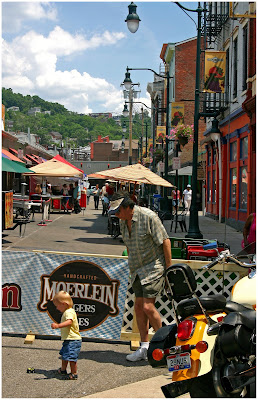Difficult budget decisions combined with an election year, make for a truly wonderful time to follow politics. That is if you enjoy constant bickering, grand standing and get nowhere fast style of government.
What is happening now in Cincinnati is not unusual. A projected budget deficit during an economic downturn has resulted in City leaders having to make very tough decisions about where to make cuts in order to balance the budget until revenues once again increase. What this has led to is a back-and-forth political mud slinging contest.
The City Manager laid out his plan to balance the budget and that included the unpopular decision to cut 138 members from the police department. Making political matters worse, the Fraternal Order of Police has refused to make any concessions in order to help preserve their own workforce, saying that the cuts need to come from other departments.
This is not new. The police and fire unions across this country are some of the strongest around and hold a hard position. They are fighting for their constituents which is reasonable, but it is up to the policy makers to hear their argument and make an informed decision based on more than just the hard stance of one or two city departments. Over the past several years other departments have been sustaining cuts, while the police force has actually grown.
Yesterday a group of four City Council members announced their plan to save all 138 police positions. Their solution: delay a $2.5 million payment to Cincinnati Public Schools that is due in October. This would save the jobs through the rest of 2009, but not help out the cause in 2010. So they go on to suggest cutting the Planning Department, Comprehensive Plan funding, and the Office of Environmental Quality (OEQ) to name a few.
What is interesting is that the Planning Department is already undersized for the a city as large as Cincinnati, the Comprehensive Plan money is coming from the Capital Budget and therefore can not be used for operational costs like police or fire, and the OEQ is basically a skeleton staff that was recently formed and has been bringing in money and making city services more efficient.
A recent report comparing recycling program costs for 2010 found that the proposed cuts to the enhanced recycling program would actually cost the City more money than it would save. The reason is that the current recycling contract costs the City $1,179,360 each year, while the enhanced program costs $980,519 each year, thus resulting in an additional $198,841 in costs for recycling while having a less effective program. The financials work out this way due to increased revenue and savings with the enhanced program. The current recycling contract recoups about 46% of its total contract cost through revenue and savings, while the enhanced program recoups around 77% of its total contract cost – offsetting the additional cost of the program and then some.
At the same time the elimination of the Office of Environmental Quality would cost the City roughly $17 million in lost revenue. The OEQ had a budget (pdf) of just under $3 million in 2009, but saved the City $650,000 in energy services performance contracts and other energy management efforts. Furthermore, the OEQ brought in $19,319,500 in grant money that would more than likely be lost as a result of cutting the department.
The numbers speak for themselves, but nobody seems to be discussing them. A reasonable debate about these tough budget decisions should be had, but said debate should be done on facts and available resources instead of political will and lobbying power.
Do we know if these 138 positions in the CPD are needed? Do we know the optimum level for a police force in order to reach the desired safety levels in our community? Maybe we need more, maybe less, or maybe everything is at an appropriate level right now. All I can say for sure is that I do not know, and I would love to see an audit that would investigate just how much we should be allocating to public safety each year to reach desired results before we keep pouring more and more limited resources into a single department at the expense of the rest.
Please contact City leaders and let them know how you feel on this issue. You can find all of the necessary contact information and additional action items HERE.


